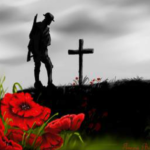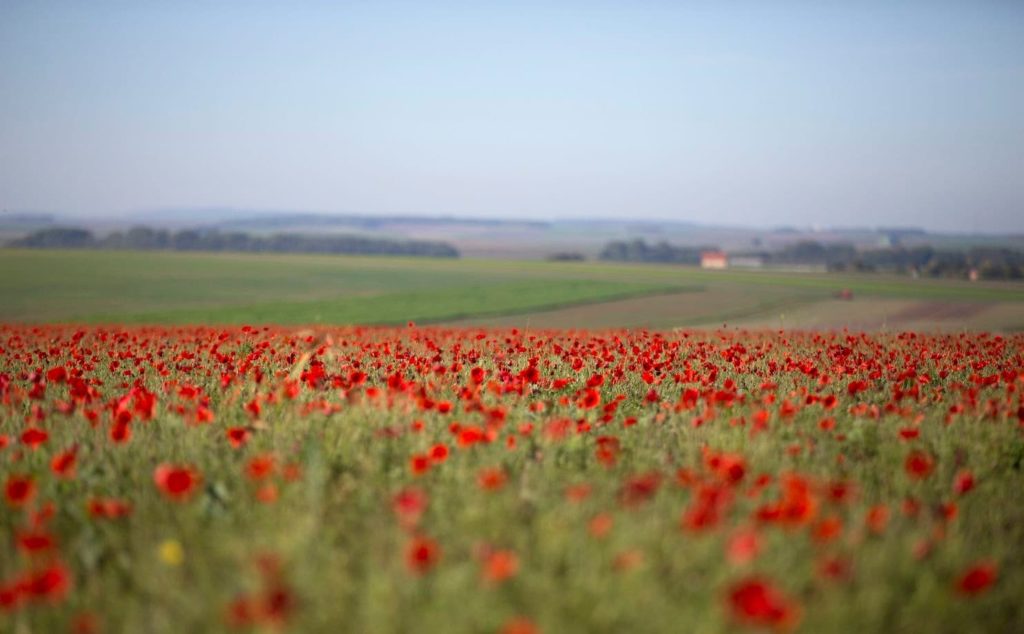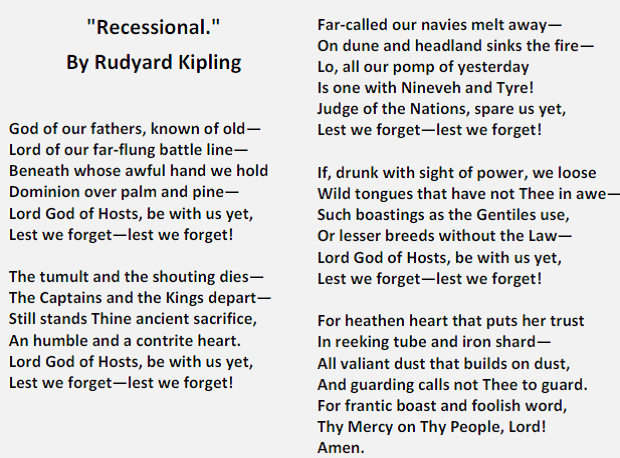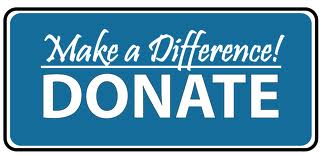The armistice ending World War I was signed at 5:10 AM in a railroad car in the Forest of Compiegne, northeast of Paris, but it didn’t go into effect until 11 AM — the Eleventh hour of the Eleventh day of the Eleventh Month of 1918 — 100 years ago last Sunday. And yesterday, we celebrated again a Veterans Day holiday to honor all who have worn our nation’s uniforms.
We honor those who have served, in all branches of our military forces. Notably, Saturday was also the birthday of the Marines, founded in 1775. Also in 1775, the Continental Congress founded the Continental Army and Navy, which later morphed into the U.S. Army and Navy. The Coast Guard was established initially in 1790 under the Department of the Treasury and through a variety of transitions is now under the Department of Homeland Security.
The youngest of our services, in which I was privileged to serve, was initially in the Army Signal Corps, then the U.S. Army Air Corps during World Wars I and II and became a separate service, the U.S. Air Force, in 1947. And now, President Trump has directed his Defense Department to initiate plans for a U.S. Space Force — which would combine the various activities of the nation’s space activities into a single service.
After last week’s election, the President and his administration will have a “hard row to hoe” — as we used to say on the farm — in extending a new service into Space. Click here for my Newsmax article last Friday, discussing this important challenge to gain approval from at best a divided congress: “Trump Has Last Chance to Make ‘Final Frontier’ History.” But we are clearly headed in that direction, now with a reinstated Unified U.S. Space Command and other initiatives that the Pentagon is pursuing under its own authority.
But I digress, since my main point today is to reflect on Veterans Day and all veterans who have served this nation.
Consider the role previously played by the poppy as a symbol of Veterans Day. That role also was derived from World War I. The custom of wearing paper poppies began to remember the cost of World War I that was supposed to end wars — a failed aspiration, of course.
This poppy custom has waned in the United States but remains strong in Britain, the scene of national ceremonies Sunday to mark the armistice that ended World War I in 1918. (World leaders also gathered in Paris.) More than 40 million paper poppies are distributed by the Royal British Legion each year, and all the country’s leaders, including Queen Elizabeth, wear them.
Along the Western Front between 1914 and 1918, the fixed nature of entrenched warfare led to mass destruction on every level. At its most intense, artillery batteries could lay down 10 shells per second, flattening villages and towns, and creating a wasteland of mud and splintered trees in the rolling farmland, forests and broad river valleys. The shelling unearthed untold millions of dormant, buried poppy seeds, which began to germinate, grow and bloom.
Poppies are shown in full bloom in a field near Sommepy-Tahure, France. (Virginia Mayo/AP)
The corn poppy is a pesky weed, a sweet, delicate garden flower and, for the past century, the emblem of the human cost of war. After one of his comrades was killed, the Canadian field surgeon John McCrae penned the enduring poem linking the corn poppy to the slaughter of industrialized warfare. “In Flanders fields the poppies blow/Between the crosses, row on row.”
In Flanders Field
John McCrae, 1872 – 1918
In Flanders fields the poppies blow
Between the crosses, row on row,
That mark our place, and in the sky,
The larks, still bravely singing, fly,
Scarce heard amid the guns below.
We are the dead; short days ago
We lived, felt dawn, saw sunset glow,
Loved and were loved, and now we lie
In Flanders fields.
Take up our quarrel with the foe!
To you from failing hands we throw
The torch; be yours to hold it high!
If ye break faith with us who die
We shall not sleep, though poppies grow
In Flanders fields.
Final thoughts this week come from a couple of poems. The first is credited to Charles M. Province, a veteran of the US Army and sole Founder and President of The George S. Patton, Jr. Historical Society.
It Is The Soldier
It is the Soldier, not the minister
Who has given us freedom of religion.
It is the Soldier, not the reporter
Who has given us freedom of the press.
It is the Soldier, not the poet
Who has given us freedom of speech.
It is the Soldier, not the campus organizer
Who has given us freedom to protest.
It is the Soldier, not the lawyer
Who has given us the right to a fair trial.
It is the Soldier, not the politician
Who has given us the right to vote.
It is the Soldier who salutes the flag,
Who serves beneath the flag,
And whose coffin is draped by the flag,
Who allows the protester to burn the flag.
Charles Michael Province, U.S. Army
Copyright Charles M. Province, 1970, 2005
All rights reserved.
And the second is a poem by Rudyard Kipling that I remember from my High School years, when it was still quite appropriate in that setting to consider a higher calling from the Creator to whom our Declaration of Independence referred. I did a little googling to consider its origin, with which I will conclude.
Kipling’s Recessional, composed for the occasion of Queen Victoria’s Diamond Jubilee in 1897, is a prayer that describes two fates that befall even the most powerful people, armies and nations, and that threatened the British Empire at the time: passing out of existence, and lapsing from Christian faith into profanity. The prayer entreats God to spare “us” (the British Empire) from these fates “lest we forget” the sacrifice of Christ. The phrase later passed into common usage after World War I across the British Commonwealth especially, becoming linked with Remembrance Day — or Poppy Day — observations (also on November 11th); it came to be a plea not to forget past sacrifices, and was often found as the only wording on war memorials, or used as an epitaph.
Bottom Lines.
We need to return to the ways of our fathers — for the good of our nation and those who follow us. We must remember their sacrifices that gave us this hope to be “the shining city on a hill” that Ronald Reagan saw and sought. And we must keep that faith for the sake of those who come after us.
That is how we should honor those veterans whose sacrifice we remembered Sunday and yesterday.
And, like them, let’s respect our flag and our national anthem…and teach our young people why!
Stay tuned.
What can you do?
Join us in praying for our nation, and for a rebirth of the freedom sought, achieved and passed to us by those who came before us.
Help us to spread our message to the grass roots and to encourage all “powers that be” to provide for the common defense as they are sworn to do.
Begin by passing this message to your friends and suggest they visit our webpage www.highfrontier.org, for more information. Also, please encourage your sphere of influence to sign up for our weekly e-newsletter.
Encourage them to review our past email messages, posted on www.highfrontier.org, to learn about many details related to the existential manmade and natural EMP threats and how we can protect America against them. I hope you will help us with our urgently needed efforts, which I will be discussing in future messages.
Click here to make a tax deductible gift. If you prefer to mail a check, Please send it High Frontier, 20 F Street 7th Floor, Washington, DC 20001.
E-Mail Message 181113
Please click here to read Past Weekly Updates!
Please help High Frontier continue this important and timely work!
Be sure to follow us on our Social Sites!
If you found this letter via our Social Sites, and you would like to subscribe, please click below!







